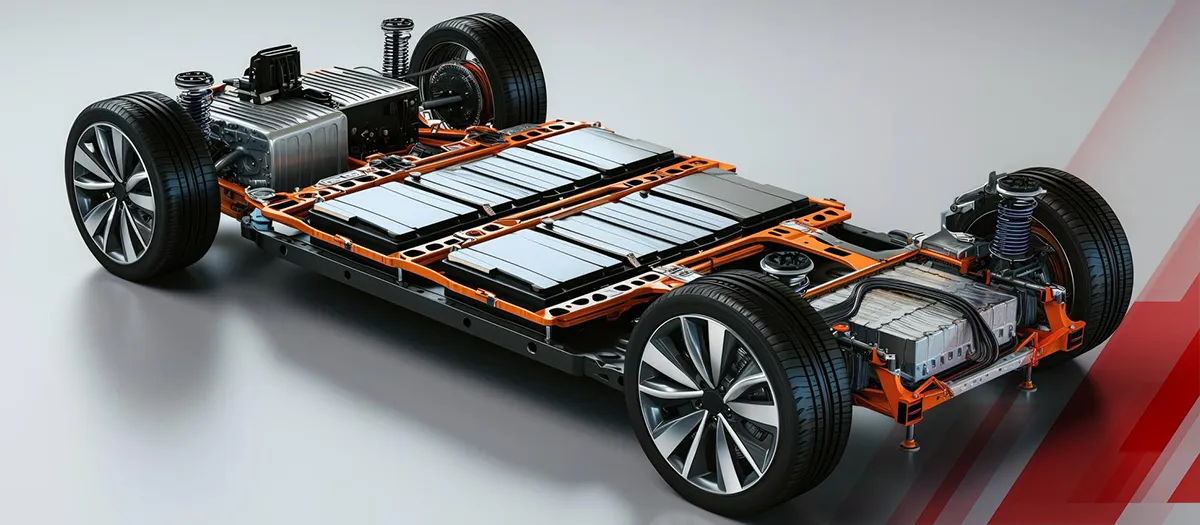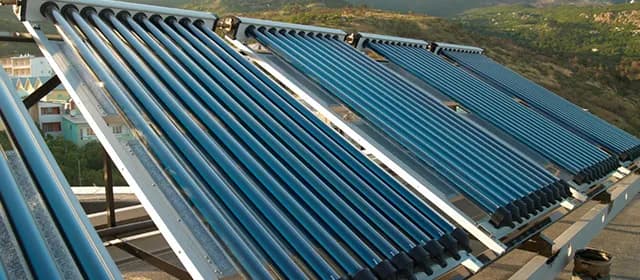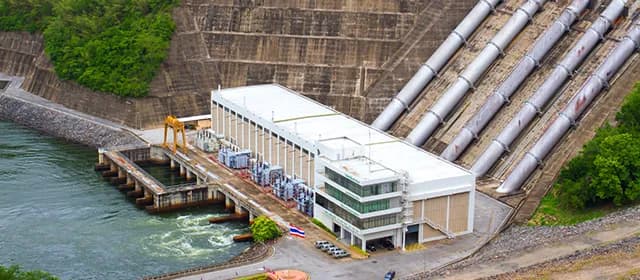Fuel cells are electrochemical devices that convert the chemical energy of a fuel (often hydrogen) and an oxidant (often oxygen) into electricity. Unlike batteries, fuel cells do not run down or require recharging. They continue to produce electricity as long as fuel and oxidant are supplied. Fuel cells are used today in a range of applications, from providing power to homes and businesses, keeping critical facilities like hospitals, grocery stores, and data centers up and running, and moving a variety of vehicles including cars, buses, trucks, forklifts, trains, and more.
The fuel cell market is experiencing substantial growth as industries worldwide seek efficient, clean alternatives to traditional energy sources. Projected to reach a market size of USD 15.91 billion by 2031, fuel cells have become an indispensable part of our lives, fueling our lives. This blog highlights the top 10 companies that are at the forefront of fuel cell technology, driving innovation and revolutionizing transportation, energy solutions, and more.
Top 10 Companies Advancing Fuel Cell Technology
1. Ballard Power Systems
Ballard Power Systems is a global leader in proton exchange membrane (PEM) fuel cell technology. With over four decades of expertise, Ballard delivers efficient and sustainable power solutions for automotive, maritime, rail, and backup power applications. Ballard's fuel cell electric buses offer a direct replacement for diesel bus fleets, providing the same route flexibility, fast refueling, and performance in challenging environments. Ballard's fuel cell vehicles have traveled over 200 million km in real-world use, equivalent to circling the globe 3,750 times. Its product uptime in fleet operations is an impressive 98%. It is also working with Caterpillar Inc. and Microsoft to deliver a backup generator system for data centers powered by large-format hydrogen fuel cells. Ballard recently announced partnerships in Europe and Asia, focusing on deploying fuel cell powertrains for hydrogen-fueled fleets. It is also collaborating with Element 1 to develop hydrogen power initiatives and bring sustainable energy solutions to wider global markets.
2. Bloom Energy
Bloom Energy is known for its solid oxide fuel cell (SOFC) technology, which provides clean, reliable, and affordable power. Its fuel cells use a variety of fuels, including natural gas, biogas, and hydrogen, to generate electricity with high efficiency and low emissions. Bloom Energy's fuel cells offer a sustainable alternative to traditional power generation, reducing greenhouse gas emissions and improving air quality. Its SOFC technology is particularly well-suited for stationary power applications, providing continuous and reliable power with minimal environmental impact. Bloom Energy has been focusing on expanding its hydrogen-based solutions, including electrolyzers for green hydrogen production and fuel cells for power generation. It is also working on deploying its fuel cells for data centers, hospitals, and other critical infrastructure.
3. Ceres Power Holdings Plc
Ceres Power is developing SOFC technology for decentralized power generation. Its fuel cells use a variety of fuels, including natural gas, biogas, and hydrogen, providing flexibility and reducing reliance on fossil fuels. With benefits like high efficiency and low cost, Ceres Power has been focusing on commercializing its SteelCell technology for residential, commercial, and industrial power generation. The company has entered into partnerships with several major companies, including Bosch and Weichai, to develop and deploy SOFC-based power systems. Its SOFC technology enables highly efficient and low-emission power generation, contributing to a more sustainable energy future.
4. Doosan Fuel Cell Co., Ltd.
Doosan Fuel Cell, a subsidiary of Doosan Group, specializes in developing fuel cell systems for stationary and mobile applications. It has been advancing hydrogen-based fuel cell powertrain technologies for commercial and industrial sectors. In 2023, the company announced plans to expand its production facilities and partnerships, including collaborating with major South Korean automakers to bring fuel cell vehicles to the market.
5. FuelCell Energy, Inc.
FuelCell Energy is involved in the design, manufacture, and operation of fuel cell power plants. Its fuel cell power plants offer a sustainable alternative to traditional power generation, reducing greenhouse gas emissions and improving air quality. Its fuel cells use a variety of fuels, including natural gas, biogas, and hydrogen, to generate electricity and heat with high efficiency. FuelCell Energy has been focusing on deploying its fuel cell power plants for stationary power applications, including data centers, hospitals, and universities. It is also working on developing fuel cell solutions for carbon capture and hydrogen production.
6. Horizon Fuel Cell Technologies
Horizon Fuel Cell Technologies specializes in the design and manufacture of micro fuel cells and fuel cell stacks. It offers a range of fuel cell products for education, research, and industrial applications. The company is committed to innovation in fuel cell technology, developing new materials and designs to improve performance and reduce costs. Horizon Fuel Cell Technologies has been focusing on developing fuel cell solutions for portable power, drones, and robotics. It is also working on expanding its fuel cell stack offerings for large-scale applications.
7. Nexceris LLC
Nexceris develops fuel cell components and systems, including SOFCs and PEM fuel cells. It offers a range of products and services for fuel cell developers and manufacturers. Nexceris has been focusing on developing advanced materials and components for SOFCs, including electrolytes, electrodes, and interconnects. It is also working on improving the performance and durability of PEM fuel cells. With extensive experience in fuel cell technology, it also assists other companies in refining SOFC designs and manufacturing methods.
8. NUVERA FUEL CELLS, LLC
Nuvera Fuel Cells LLC designs and manufactures fuel cell power systems for industrial vehicles and equipment, focusing on improving energy efficiency and reducing emissions. In 2023, it launched a new generation of fuel cell engines for mobile applications, targeting heavy-duty vehicles such as forklifts and buses. The company continues to focus on bringing hydrogen-based power systems to the global commercial vehicle market.
10. Proton Motor Fuel Cell GmbH
Proton Motor Fuel Cell GmbH specializes in the development and manufacture of fuel cell systems for automotive, stationary power, and marine applications. The company has been focusing on developing fuel cell solutions for electric vehicles (EVs), including buses, trucks, and trains. It is also working on deploying its fuel cell systems for stationary power applications, such as backup power for critical infrastructure.
10. SFC Energy AG
SFC Energy develops fuel cells for stationary and mobile hybrid power solutions, focusing on off-grid and remote applications. In 2023, its expanded its fuel cell production capacity in Europe to meet the growing demand for green hydrogen solutions. The company has been focusing on sectors like defense, telecommunication, and EV charging, with its latest generation fuel cells designed for higher efficiency and durability.
Conclusion
The fuel cell industry is rapidly evolving, driven by the need for cleaner, more efficient, and sustainable energy solutions. The top 10 companies highlighted in this blog are leading the charge, developing cutting-edge fuel cell technologies that promise to revolutionize transportation and other key sectors. From automotive giants like Toyota and Hyundai to specialized innovators like Ballard Power Systems and Doosan, these companies are laying the groundwork for a hydrogen-powered future. With ongoing advancements in fuel cell technology and the expansion of hydrogen refueling infrastructure, the future looks bright. Fuel cells may enable a cleaner and more sustainable energy future.



